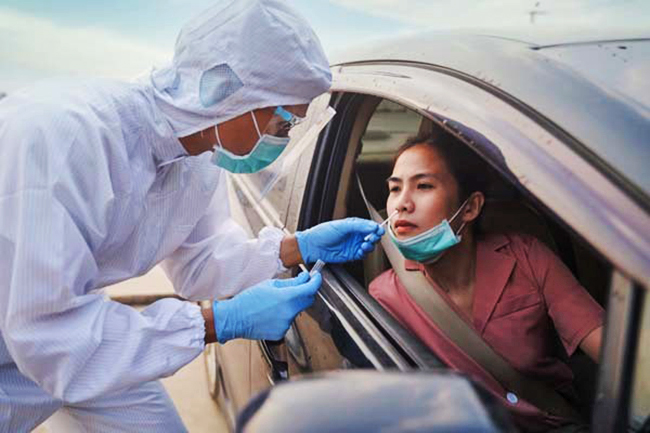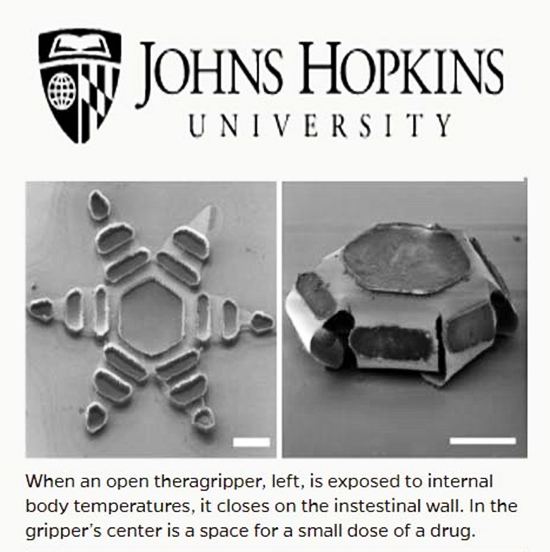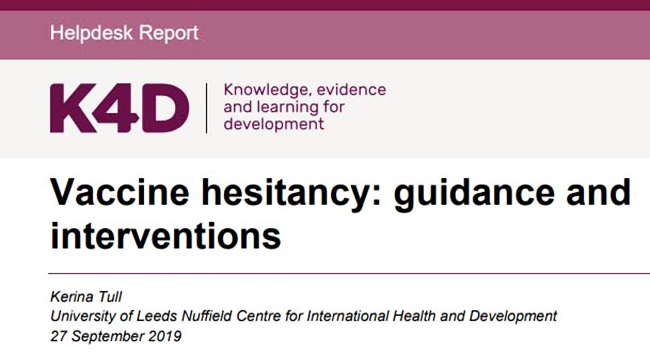|

by John O'Sullivan
December 2,
2020
from
Principia-Scientific Website
Information sent by
Bazook894

Concern is growing that an innovative nanotech device developed at
Johns Hopkins University may be used to secretly deliver the COVID19
vaccine to those people who are "vaccine hesitant."
Certainly, the technology is real, but is their any merit to such a
claim?
Patrick Smith (November 25,
2020) writing for
hub.jhu.edu explains:
"Inspired by a
parasitic worm that digs its sharp teeth into its host's
intestines, Johns Hopkins researchers have designed tiny,
star-shaped microdevices that can latch onto intestinal mucosa
and release drugs into the body.
David Gracias, a professor
in the Whiting
School of Engineering, and gastroenterologist Florin
M. Selaru, director of the Johns Hopkins
Inflammatory Bowel Disease Center (JHIBDC),
led a team of researchers and biomedical engineers that designed
and tested shape-changing microdevices that mimic the way the
parasitic hookworm affixes itself to an organism's intestines."
Called "theragrippers"
these tiny devices are made of metal and a thin, shape-changing
film.
They are coated in
heat-sensitive paraffin wax and each is no bigger than a speck of
dust (see image below).

Even the inventors
of this microtechnology admit it can potentially transport any drug
and release it gradually into your body and you won't even know
anything about it.
A Dodge to
Defeat Vaccine Hesitation?
What reason would
there be to engage in mass deception to secretly deliver a vaccine
to defeat
the coronavirus 'pandemic'?
Surveys have been
revealing a marked drop in public confidence that vaccines are
really worth the risk...
In 2019, the World
Health Organization (WHO) listed vaccine hesitancy as a
top ten threat to global health.
Only
half of surveyed American adults
would receive a coronavirus vaccine if it were available today.
That number is down
precipitously from over 70 percent since May 2020.
But the real concern for policymakers and the vaccine lobby is that
there is a huge surge in the medical professions
AGAINST
vaccines
with
just 40 percent of health care
workers saying they were likely to get vaccinated.
But all such
reluctance against the COVID jab will be in vain if a vaccine can be
delivered by stealth merely when anyone takes the now ubiquitous
PCR
swab test (photo top).
The claim is that
the dust-sized "theragrippers" can be implanted in the tips of PCR
test swabs and be delivered to the innocent "victim."
It may be utterly
immoral - and likely illegal - but it is certainly feasible because
the Hopkins team published results of an animal study this week as
the
cover article in the
journal Science Advances.
Thousands of these
sinister miniature theragrippers can be deployed in the GI tract via
a simple, innocent swab given as part of the COVID19 test already
taken by millions worldwide.
Quite simply, you
wouldn't feel a thing...!
"When the
paraffin wax coating on the grippers reaches the temperature
inside the body, the devices close autonomously and clamp onto
the colonic wall.
The closing
action causes the tiny, six-pointed devices to dig into the
mucosa and remain attached to the colon, where they are retained
and release their medicine payloads gradually into the body.
Eventually, the
theragrippers lose their hold on the tissue and are cleared from
the intestine via normal gastrointestinal muscular function."
Absent any evidence
to the contrary, are we to believe we have nothing to fear from
being 'poisoned' by the tiny critters?
Vaccine
Hesitancy On the Rise!
All we can do at
this point is to maintain our guard and demand answers from
policymakers as to when, and if, this frightening medical
breakthrough will be deployed against an increasingly vaccine
hesitant public.
We know the
political class is already compromised on the issue, with so many
high profile politicians having financial shares in vaccine
companies.
For example, only
last year a top FDA medical adviser
declared:
'Congress is
owned by pharma.'
President Donald
Trump
took a shot at the influence of
drug companies over Congress by lamenting:
"They contribute
massive amounts of money to political people."
Last September, for
example, the UK government published 'Vaccine
Hesitancy - Guidance and Interventions.'

The above document,
in the section Lessons Learned (page,
3 para. 2) reveals how policymakers intend to get
refusers to submit to their diktats:
"Lessons learned:
A
unidirectional (top down) approach to communication is
successful among some individuals and groups, but not all;
success is dependent on the nature and degree of hesitancy
(Jarrett et al., 2015).
Familiarity and
trust with the messenger is a key feature in tackling hesitancy
(WHO SAGE, 2014a; Nayar et al., 2019). Vaccine hesitancy and
political populism are driven by similar dynamics: a profound
distrust in elites and experts (Kennedy, 2019).
Many experts
believe that it is best to counter hesitancy at the population
level (Kumar et al., 2016). Lessons learned have been compiled
in the Catalogue of interventions addressing vaccine hesitancy
technical report (ECDC, 2017).
Some countries
have turned to mandatory vaccination programs (USA, France -
albeit temporarily) - however experimental evidence shows that
making one vaccine mandatory might reduce people's uptake of
others (Omer et al., 2019).
Other approaches include penalties for non-compliance (Germany,
Italy), or making vaccination a requirement for enrolment in
childcare and school, which can help to increase rates (USA,
Australia).
Although
popular, the effectiveness of promoting alternative vaccination
schedules to decrease hesitancy has not been studied
conclusively enough (National Research Council, 2013; Feemster,
2016)."
Source
Meanwhile, in the
United States the prominent White House Coronavirus task force front
man,
Dr Anthony Fauci has already expressed dismay at growing
public disquiet on vaccine safety.
Fauci said it won't
be easy getting large numbers of people vaccinated because of
suspicion and "vaccine hesitancy," especially among minority
communities.
A recent Gallup
Poll showed,
48% of
people of color in the U.S. said they would take a coronavirus vaccine, compared to 61% of White respondents.
Overall,
about 58% of American poll respondents said they would take a vaccine.
We know for a fact
pharmaceutical companies spend far more than any other industry to
influence politicians.
The UK's The Guardian
reported (October 19, 2017) that:
"Drugmakers have
poured close to $2.5bn into lobbying and funding members of
Congress over the past decade."
When the rubber
meets the road,
what are corrupt
politicians going to do...?
| 



